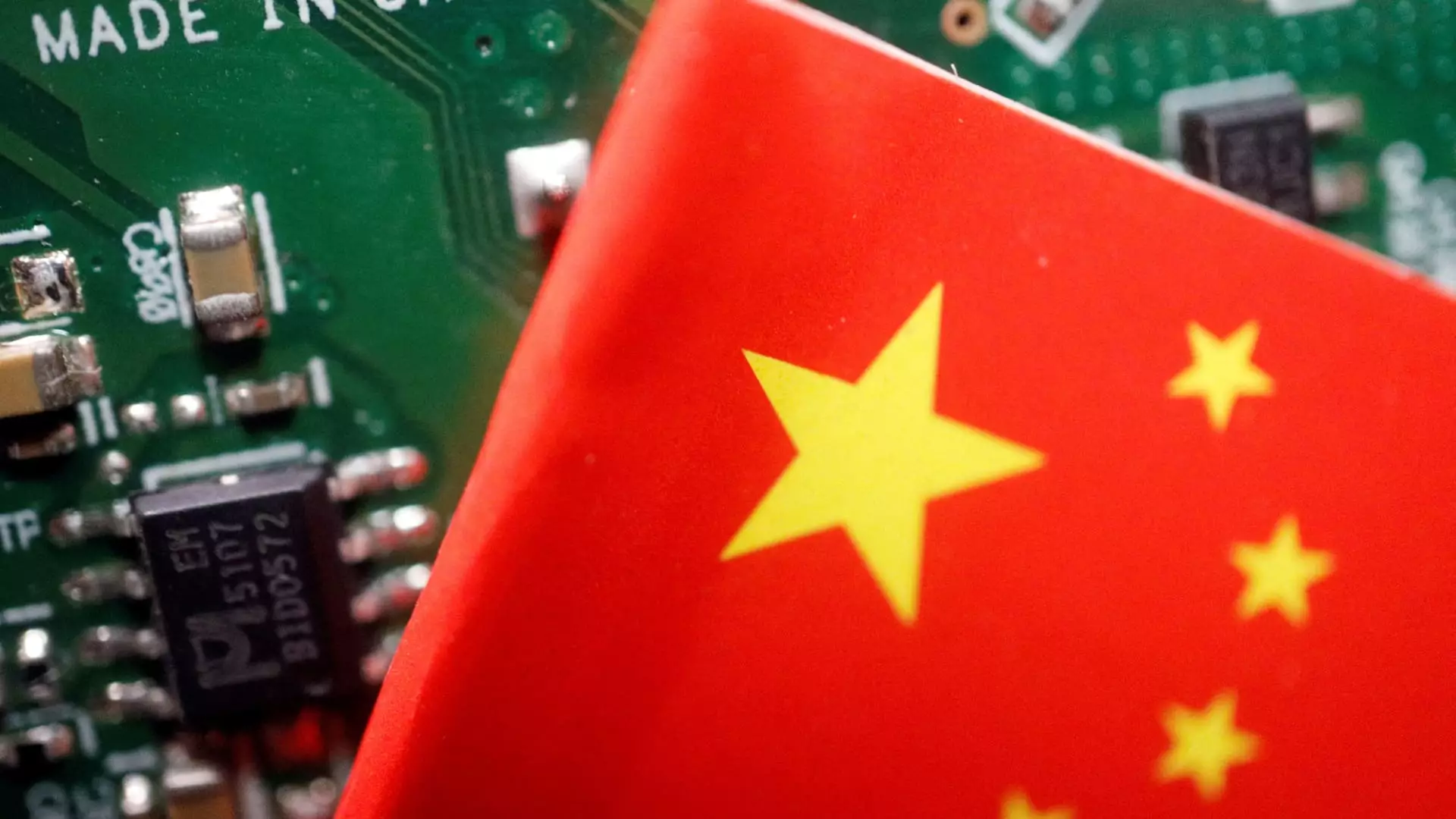The semiconductor industry is a critical pillar of modern technology and global trade. Recent weeks have showcased the volatile nature of chip stocks, particularly in light of new export restrictions imposed by the U.S. government targeting China. Despite these daunting challenges, major players in the semiconductor sector across Asia have managed to post gains, an unexpected response underscoring the market’s resilience and adaptability.
On a surface level, the news regarding U.S. export curbs could instigate fear among investors in regional semiconductor markets. Companies like Taiwan Semiconductor Manufacturing Company (TSMC), renowned as the world’s leading contract chip supplier, registered an encouraging uptick, with shares rising by 2.4%. This suggests that investors remain confident in TSMC’s position within the industry, viewing it as a robust candidate capable of weathering geopolitical tensions.
Japanese companies, integral to the semiconductor supply chain, also responded positively. For instance, Tokyo Electron saw a 4.7% increase, while Lasertec surged by 6.7%. Even firms like Advantest and Renesas Electronics enjoyed gains, suggesting a broad-based optimism that perhaps indicates a degree of operational independence from the fluctuations stirred by U.S.-China relations.
The new trade restrictions announced by the U.S. Department of Commerce represent a strategic endeavor aimed at curbing China’s advancements in semiconductor capabilities, which authorities argue could contribute to military enhancements. Specifically, the latest restrictions include export bans on semiconductor technologies to an expanded list of 140 Chinese companies. Notable mentions from this list are Naura Technology Group and ACM Research, both of which saw their stock prices decline sharply on the news.
The U.S. Secretary of Commerce, Gina Raimondo, characterized these actions as the peak of a tactical strategy as articulated by the Biden-Harris administration. The government is intent on stifling China’s ambition to achieve self-sufficiency in advanced technologies that could interfere with U.S. national security interests. This backdrop of scrutiny reflects a growing acknowledgment of the intertwined nature of technology and geopolitics.
Despite the heavy regulatory pressures, some industry analysts are cautiously optimistic. Derrick Irwin, a portfolio manager at Allspring Global Investments, articulated that while the impact on South Korean memory manufacturers like Samsung and SK Hynix would likely be felt to some extent, it may not significantly threaten their overall operations. According to Irwin, the market for high-bandwidth memory chips may successfully redirect demand from China to other regions, specifically the United States.
As a result, while there may be initial turmoil from these restrictions, a sort of equilibrium could emerge. Companies may adapt by diversifying their client base and investing further in technology that circumscribes the restrictions placed before them.
The dynamic response from Asian chip stocks in the wake of stringent U.S. semiconductor export curbs reflects an industry that is both resilient and strategic. While challenges undoubtedly lie ahead, particularly with the ongoing evolution of trade relations and technology advancements, the inclination for growth among companies like TSMC and numerous Japanese firms indicates a collective readiness to pivot as needed.
While the geopolitical landscape may paint a picture of uncertainty for the semiconductor industry, the ability of these advanced manufacturers to adapt and redirect their business strategies ultimately plays a pivotal role in shaping their futures. The resilience demonstrated by market players amid heightened regulatory scrutiny could signal an opportunity for innovation and market adjustment in an often unpredictable global environment.

